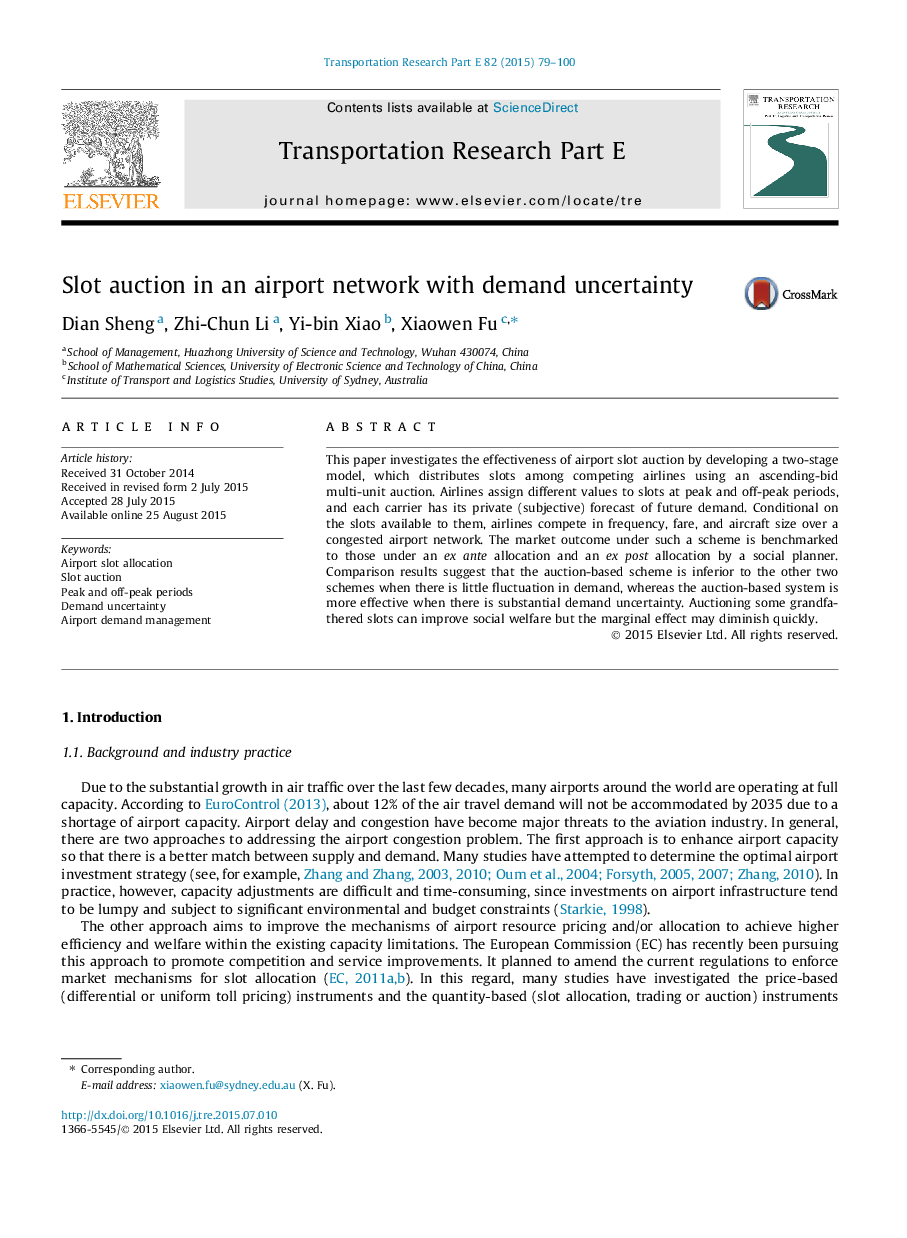| Article ID | Journal | Published Year | Pages | File Type |
|---|---|---|---|---|
| 1023076 | Transportation Research Part E: Logistics and Transportation Review | 2015 | 22 Pages |
•We model the effects of airport slot auction to airlines competing over a network.•Slot auction is benchmarked to ex ante and ex post allocations by a social planner.•Slot auction is more efficient under substantial demand uncertainty.•Social planner allocation is more efficient if demand uncertainty is low.•Auctioning grandfathered slots can improve social welfare to limited extent.
This paper investigates the effectiveness of airport slot auction by developing a two-stage model, which distributes slots among competing airlines using an ascending-bid multi-unit auction. Airlines assign different values to slots at peak and off-peak periods, and each carrier has its private (subjective) forecast of future demand. Conditional on the slots available to them, airlines compete in frequency, fare, and aircraft size over a congested airport network. The market outcome under such a scheme is benchmarked to those under an ex ante allocation and an ex post allocation by a social planner. Comparison results suggest that the auction-based scheme is inferior to the other two schemes when there is little fluctuation in demand, whereas the auction-based system is more effective when there is substantial demand uncertainty. Auctioning some grandfathered slots can improve social welfare but the marginal effect may diminish quickly.
